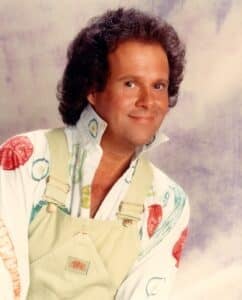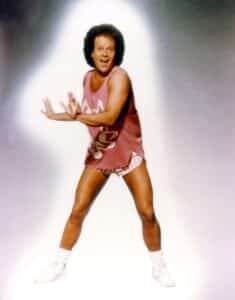Legendary Fitness Icon Richard Simmons Dies At 76
On July 13, Richard Simmons died. He was 76 years old when he passed away one day after his birthday. Simmons had been found unresponsive in his Hollywood Hills home on Saturday, two law enforcement sources told NBC News. By time of writing, the cause of death is still pending.
Simmons was a fitness icon known for his weight loss programs, most especially his Sweatin’ to the Oldies aerobics videos. He would become a frequent and memorable guest on radio shows and television programs, including The Late Show with David Letterman and The Howard Stern Show.
Richard Simmons has died suddenly, months after a poignant message to fans
Just three months prior to his passing, Simmons shared a grave health update with his fans on social media. “I have some news to tell you,” he announced, “Please don’t be sad. I am …. dying. Oh I can see your faces now. The truth is we all are dying. Every day we live we are getting closer to our death.” At the time, the message had not actually been meant as a warning but as an encouragement to “embrace every day that we have.”
Kicking off his career in 1968, Simmons had all but disappeared from the spotlight as of 2014. However, he recently announced a comeback in the form of an interactive Broadway musical. The announcement came not long after the release of Court Jester, a short film about Simmons played by Pauly Shore.
Taking the world of fitness by storm and to new terrain

Simmons was born on July 12, 1948, in New Orleans, Louisiana, the son of “show-business parents.” His early childhood and adolescence was marked by struggles with obesity. As early as five years of age, his weight inspired hurtful, negative reactions from those around them—and at that young an age, Simmons was aware of the vitriol he was the target of. He weighed 182 pounds by age 15, and at his heaviest, he weighed 268 pounds.
RELATED: In Memoriam — All The People We Lost In 2023
After moving to Los Angeles and working as the maître d’hôtel at a Beverly Hills restaurant, Simmons began his fascination with fitness.

In particular, he noticed that institutions like gyms catered to those who were already fit, or near enough where they physically wanted to be and had only to maintain it—but where was the place catering to those who were coming from an unhealthy place that wanted to achieve fitness for themselves? Simmons completely changed the game by focusing on this underserved demographic, transforming the process of accessing and maintaining fitness into something for everyone.


